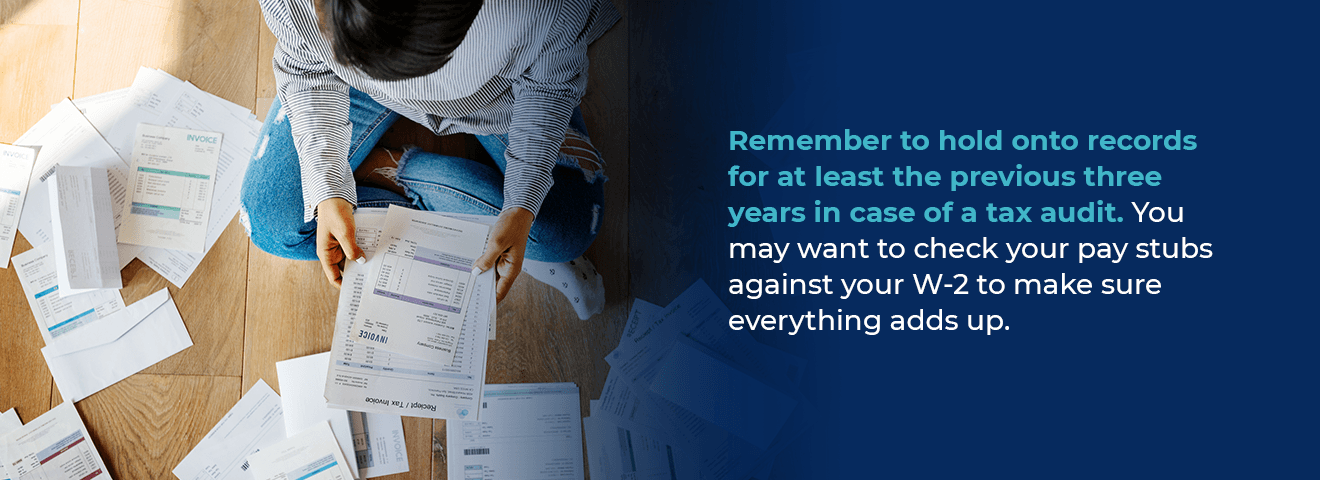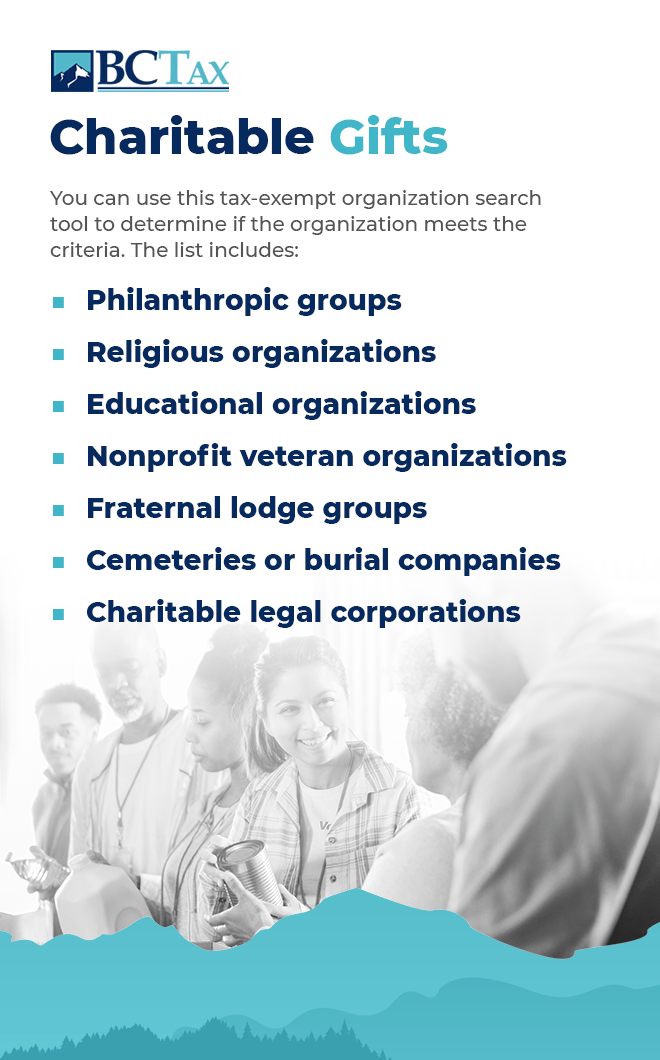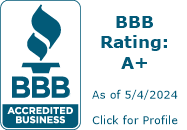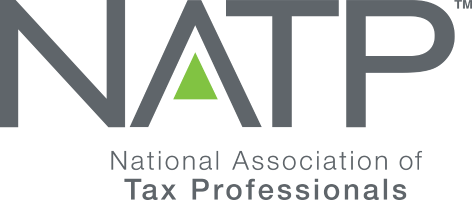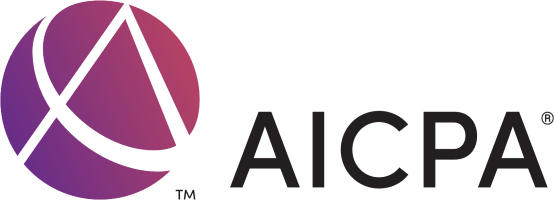The Internal Revenue Service (IRS) implements minor tax changes every year, including adjustments for inflation, new exemptions and alterations to certain provisions. Most things have been unusual lately thanks to the COVID-19 pandemic, and 2021 tax changes are a little more dramatic than normal. So far, Congress and the IRS have not decided to push the Tax Day deadline like they did in 2020.
When filing your taxes this spring, it’s important to keep up with the latest changes to ensure accurate and beneficial tax filing. Knowing what changes the IRS has made may end up saving you money on your tax return. It can also help you avoid incorrect filing, keeping you safe from any penalties. Use this guide to learn about changes and considerations for 2021 tax filing.
How to Plan for Tax Season 2021 FAQs
When planning to file 2021 taxes, you may have a few questions. Here’s some general advice on planning for this year’s tax season:
When Is Tax Day?
First, you’ll need to know the deadline. Tax Day is on April 15, 2021 — this will be the deadline for filing 2020 tax returns. If you miss the deadline and you owe taxes, you’ll incur penalties. If you’re eligible for a refund, you will not incur penalties. Those who need more time can fill out a tax extension form, but note that interest will continue to accumulate if you’re granted an extension.
What Documents Should I Gather?
As you prepare to file your taxes, be sure to gather all important documents, including:
- Any W-2 forms and your pay stubs for the year.
- Last year’s tax return.
- Mortgage payment stubs.
- Receipts or acknowledgment letters from charitable donations.
- Receipts for business travel expenses.
- Credit card or bank statements if you need to verify a deduction.
- Medical bills, especially if you had high medical expenses.
- Any 1099 forms.
Remember to hold onto records for at least the previous three years in case of a tax audit. You may want to check your pay stubs against your W-2 to make sure everything adds up. Always add up your itemized deductions to see if they exceed the standard deduction — you can use whichever number is higher.
Where Can I Find a Professional Tax Accountant?
Since taxes are a bit more complicated this year, you might want help from a professional tax accountant. If you’re looking for help with your tax planning this year, consider BC Tax services — we can help you with tax preparation, back taxes, account protection and bookkeeping.
Do My Stimulus Checks Count as Taxable Income?
In short, no, your stimulus checks do not count towards your taxable income. Instead, the IRS is treating stimulus checks as refundable tax credits. If you missed the first or second stimulus check, you can file for a recovery rebate credit.
Do I Need to Pay Income Taxes on My Unemployment Benefits?
The pandemic resulted in unprecedented numbers of unemployed workers. Some may be unsure how unemployment will affect their taxes, especially those who have never received unemployment benefits before. Unemployment benefits are taxable income, so you do have to pay income taxes on them. If you opted out of automatic withholding when you registered for unemployment, you’ll have to pay quarterly estimated taxes or keep enough money set aside to pay your taxes in April.
Changes for Tax Season 2021 FAQs
Though there is no automatic extension to the deadline yet, the IRS and Congress have implemented a few important changes this year. Some changes are standard, while others are unique. Read on to learn about filing your taxes in spring 2021:
What Is the Coronavirus Aid, Relief and Economic Security (CARES) Act?
Signed on March 27, 2020, the Coronavirus Aid, Relief and Economic Security (CARES) Act offered massive economic relief, some of which affects the 2021 tax season. It’s the largest “rescue package” in United States history, with $2 trillion of expenses, including stimulus packages, expanded unemployment benefits, small business loans and grants to certain industries and local governments. With such unprecedented economic relief measures in 2020, taxes are sure to look different this year for most Americans.
What Are the 2021 Tax Brackets?
The tax brackets increased in 2021 to account for inflation, per usual. It’s important to recognize how income taxes work in the United States. Income taxes are progressive — each dollar you earn in each of seven tax brackets accrues tax at a certain, increasing percentage.
In 2020, if you made between $0 and $9,875, you’d pay taxes at 10%. If you made $9,875 to $40,125, you’d pay taxes at 12% for all the earnings beyond $9,875. So, if you made exactly $10,000, you’d owe 10% on $9,875 and 12% on the remaining $125. Each bracket has increased a few hundred dollars since 2019, so be sure to double-check how much you owe.
What Is the Current Standard Deduction?
Accounting for inflation, the IRS raised the standard deduction to $12,400 for single filers, a $200 increase. The change is proportional for married couples filing jointly, with a standard deduction of $24,800. For heads of households, the standard deduction is now $18,650. The deduction for those who are married filing separately is the same as the standard deduction for single filers.
How Did Retirement-Related Taxes Change?
The CARES Act and the Setting Every Community Up for Retirement Enhancement (SECURE) Act resulted in some substantial changes related to retirement. Those under the retirement age could take out up to $100,000 from their 401(k) or Individual Retirement Account (IRA) without having to pay a penalty for early withdrawal.
The CARES Act also allowed retired adults to skip Required Minimum Distributions (RDMs) in 2020. These are the withdrawals you’re required to take out of your IRA after you reach a certain age. The SECURE Act pushed that age to 72. These two changes will allow older adults to accumulate more savings since IRA withdrawals are taxable income. Note that if you took out money from your IRA or 401(k), you have three years to replace the money and receive a refund on the taxes you paid for it.
What Deductions Should I Know About for 2021?
You may be eligible for other deductions beyond the standard deduction. Here are some details about other deductions to consider. To take advantage of these deductions, you’ll have to list itemized expenses and may need proof. Make sure your itemized expenses exceed the standard deduction — otherwise, you can just take the standard.
1. Medical Expenses
If you accumulated high medical bills in 2020, you could get some financial relief on your taxes. With COVID-19 putting increased numbers of people in the hospital this year, many Americans are likely to qualify for medical expense deductions. Anything above 7.5% of your adjusted gross income (AGI) you can deduct. Your AGI is your total income minus any other deductions. Medical expenses you can deduct include:
- Medical professional fees or nontraditional practitioner fees.
- Inpatient or residential nursing home care as long as access to medical care is the principal reason for placement. Inpatient treatment can include substance addiction rehabilitation.
- Costs associated with weight loss programs for a specific disease, including obesity.
- Payments for prescription drugs.
- The cost of admission and transportation to a medical conference. Note, this only applies if you, your spouse or your dependent has a relevant chronic illness and the costs are necessary for medical care.
- Payments for false teeth, prescription glasses, guide or service dogs, contact lenses, hearing aids, wheelchairs and crutches.
- Travel expenses necessary for medical care.
- Certain insurance premiums, but not employer-sponsored premiums.
You may be surprised to realize how many medical expenses can count towards your itemized deductions. Add up your medical expenses to see if they exceed 7.5% of your AGI and if they, along with any other itemized deductions, exceed the standard deduction. If they do, claim them on this year’s taxes. Keep in mind, you cannot deduct non-prescription drugs, except for insulin, or general health purchases like gummy vitamins or a gym membership.
2. Charitable Gifts
The federal government seeks to incentivize charitable donations, especially with COVID-19 affecting charities. Whether you choose to take the standard deduction or itemized deductions, you can deduct charitable gifts from your AGI, thanks to special changes this year.
Note, you can deduct charitable mileage expenses if you use your vehicle for an organization. In order to earn these deductions, the recipient charity must be a qualified organization. You can use this tax-exempt organization search tool to determine if the organization meets the criteria. The list includes:
- Philanthropic groups
- Religious organizations
- Educational organizations
- Nonprofit veteran organizations
- Fraternal lodge groups
- Cemeteries or burial companies
- Charitable legal corporations
The IRS made changes this year to help Americans give to charity, even if they do not itemize their deductions. If you opt for the standard deduction, you can still deduct up to $300 of cash contributions to charities “above the line,” decreasing both your AGI and your taxable income. This includes cash contributions made by check, credit card or debit card, but not securities or property. Since almost 9 out of 10 tax filers take the standard deduction, this benefits many individuals. Be sure to hold on to receipts or acknowledgment letters if you donate to charity.
3. Self-Employed or Small Business Expenses
Those who are self-employed or own a small business can claim specific deductions. If you use part of your home to conduct business, you can take advantage of the home office deduction. You can also claim business-related travel expenses, office equipment, meals with clients, business-protection health insurance premiums and other expenses. Keep in mind, if you have an employer but had to work from home in 2020, you do not qualify as self-employed. Only contract workers, freelancers and small business owners can claim these deductions.
4. Paycheck Protection Program (PPP) Loans
In 2020, the government offered small businesses Payment Protection Program (PPP) loans that were designed to be forgiven. If you used one of these loans to help your business, you can deduct it from your taxable income. Remember to submit your loan forgiveness application to the Small Business Administration.
Are There Any Credits I Should Know About for 2021?
After you’ve determined what deductions to take, consider which credits you may qualify for. Credits are dollar-for-dollar reductions of your taxable income, which can help you keep more money in your pocket. It’s always a good idea to research possible tax credits before filing each year.
1. Child Care and Dependent-Related Credits
If you have children, you can claim tax credits up to $2,000 for each child as long as you make less than $200,000 or $400,000 for married couples. If you paid someone to help care for your child while you worked, you might also qualify for a child and dependent care credit. This can help lessen the burden of child care expenses. Read more to help you determine if you qualify for a dependent tax credit.
Specific dependent care situations allow for further tax credits. If you’re a single parent, you can almost always file as a head of household, which allows you to take a higher standard deduction. If your child is in college, you can claim the American Opportunity Credit to help you pay for tuition, textbooks and other academic fees, as long as you make below a certain income. If you adopted a child in 2020, you might qualify for adoption credits, which include relevant fees, court costs, travel expenses and other adoption-related expenses.
2. Earned Income Tax Credit (EITC)
If you’re a low-income or mid-income earner, the Earned Income Tax Credit (EITC) may help you. It’s a refundable tax credit depending on your income and situation. The EITC holds special qualifying rules for clergy, military personnel and those with disabilities. This credit can save you hundreds or thousands of dollars on your taxes, so it’s worth finding out if you qualify.
Contact BC Tax for 2021 Tax Filing Help
Filing taxes doesn’t have to feel confusing or overwhelming, even with the extra changes you may experience in the 2021 tax season. The above info for filing taxes can help you this spring, but if you find yourself with unanswered questions, you may need a professional tax consultant. A consultant can help you maximize your earnings and reduce your tax liability using fair, honest means. This puts more money in your pocket.
If you could benefit from a professional tax consultant service, consider BC Tax. We help taxpayers in the most sensitive situations, including those who owe back taxes. We can help you with tax relief, tax planning, account protection and bookkeeping. For a free, no-obligation consultation, contact BC Tax today.

 1-800-548-4639
1-800-548-4639